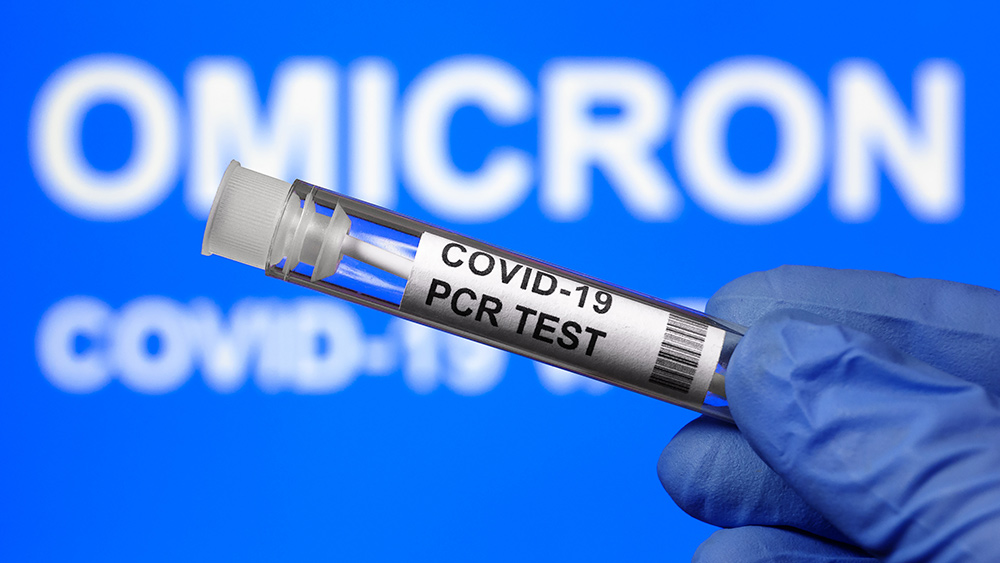Oxford study: If you survive coronavirus, you’re mentally ill
02/03/2021 / By Ethan Huff

People who test “positive” for the Wuhan coronavirus (COVID-19) and do not end up dying while “infected” have a one in three chance of developing either a mental or neurological illness following their “recovery,” a hilarious new “study” claims.
The University of Oxford, naturally, put out the paper, which claims that 33.6 percent of people who “survive” the Chinese virus are subsequently diagnosed with their first psychiatric or neurological disease within six months.
Since correlation always equals causation in the age of the novel coronavirus, the researchers involved with the study say that people should be really careful not to “catch” the disease because it could make them go crazy loco.
The non-peer-reviewed paper – because who could possibly take any of this seriously? – also claims that testing positive for the Chinese Communist Party (CCP) virus is associated with a one in nine chance of also developing depression or suffering a stroke.
Depression and mental illness are caused by lockdowns, masks and the “new normal,” not coronavirus
Ordinary influenza was not determined to have any association with these conditions, probably because it has never come with mandatory “stay at home” orders, forced mask-wearing, and other “new normal” requirements that have done a number on people’s mental health.
As you might expect, the Oxford study does not even consider the health impacts of the government response to the plandemic, which has caused far more harm than the virus itself – unless, of course, you equate this response to be the virus.
The medical establishment is pretending that there is no connection, and that it is just one big mystery why many people “diagnosed” with COVID-19 are having a difficult time staying healthy following their “recovery.”
“I don’t think we have an answer to that question yet,” says Dr. Max Taquet from Oxford’s psychiatry department.
“For diagnoses like a stroke or an intracranial bleed, the risk does tend to decrease quite dramatically within six months … but for a few neurological and psychiatric diagnoses, we don’t have the answer about when it’s going to stop,” he added.
The study admittedly does not conclusively prove that the novel virus is the direct cause of these horrific outcomes. As this writer stated earlier, though, the associated lockdowns and other restrictions more than likely are.
Another study out of Georgia claims that Chinese germs linger inside the brains of people who feel like they recovered from the illness. After entering the nasal passages of test rats, the virus went straight for the brain and triggered more problems.
“Our thinking that it’s more of a respiratory disease is not necessarily true,” stated Mukesh Kumar, a professor at Georgia State University and the lead author of this other study.
“Once it infects the brain, it can affect anything because the brain is controlling your lungs, the heart, everything. The brain is a very sensitive organ. It’s the central processor for everything.”
There could be some degree of hypochondria involved with this, as widespread fear about the virus may be convincing many people that they are sick, which ends up making them sick.
Wuhan coronavirus (COVID-19) hysteria really is a product of what people are being told to think about it rather than what it actually is. Some people who fear the Chinese virus may also be suffering from Munchausen’s syndrome, a serious mental illness whereby sufferers feign illness in order to receive hospital treatment and attention.
“I think particularly this raises a few disorders up the list of interests, particularly dementia and psychosis … and pushes a few a bit further down the list of potential importance, including Guillain-Barré syndrome,” says Dr. Tim Nicholson, a psychiatrist and clinical lecturer at King’s College Hospital.
More related news about Chinese germs can be found at Pandemic.news.
Sources for this article include:
Tagged Under: China Virus, Chinese Communist Party, Chinese Virus, coronavirus, covid-19, hypochondria, Mental illness, Mentally ill, Munchausen's syndrome, pandemic, Plandemic, Study, Wuhan, Wuhan coronavirus
RECENT NEWS & ARTICLES
COPYRIGHT © 2017 JUNK SCIENCE WATCH




















